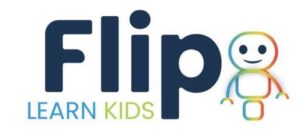Dive Brief:
- Though many states, from California to Florida, have passed 3rd grade reading policies throughout the years as a means of ensuring students are proficient at reading, experts say the punishment of holding students back a year is one that may do more harm than the intended good of additional support.
- Michigan recently reversed a 2016 law that allowed schools to retain 3rd graders if they didn’t pass state assessments, though a 2021 report from Michigan State University found reading achievement had improved annually since the 3rd grade reading law passed.
- While the 3rd grade reading policy may have benefited some students, others have not fared well, said Doris Walker-Dalhouse, professor of literacy at Marquette University and president of the Literacy Research Association.
Dive Insight:
As early as 1st grade, students know they’ve failed and absorb that information negatively, Walker-Dalhouse said. “They develop this learning helplessness that they will not achieve and not be a good reader, and that gets worse,” she said. “Kids drop out very early, not physically but mentally.”
Using standard assessments to demonstrate a child’s reading ability can also harm those with developmental differences and other factors that could impact their scores, said Walker-Dalhouse. She added that retention does not address student needs nor emotional, social and cultural factors that may be at play.
“Instead, we need to think about why students struggle and not think about an end-all assessment, which can create stress for students who may not be capable in their linguistic development to demonstrate skill and proficiency,” Walker-Dalhouse said.
Victoria Risko, professor emerita of language, literacy, and culture at Vanderbilt University, said states using assessments as their guidepost for promoting students need to review how these exams are constructed — and through a lens of equity.
“Is it that they can’t learn, or are we not tapping into what they need?” Risko said. “The tests are quite discriminatory.”
Ultimately, stakeholders should consider if the goal is to ensure 3rd-graders read by the end of the school year but end up hating the practice, said Walker-Dalhouse. Or if the goal is to develop an interest in continuing to read, she said, helping them pursue their education throughout their life.
“When looking at any information, of course some will say gains are there,” she said. “But what to the extent of long-term interest in being literate? Meaning I can read, but do I choose to read?”






Leave a Reply